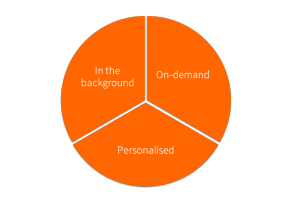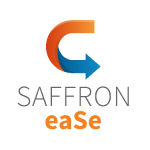Think of sounds that splinter the human ear
The bagpipes, played by a panting, puff-faced amateur with no idea how to squeeze a tartan bag to produce a booming tune. The violin played by shaking hands screeching down the strings like cat-claws down a chalkboard. The horn, bassoon, clarinet, oboe; a chorus of noise played by a dry-mouthed, wide-eyed orchestra of disinterested and ill-prepared musicians.
Now, think of Wolfgang Amadeus Mozart, a musical genius celebrated across the world for his gorgeous melodies and exquisite talent. Producing over 600 works in 35 years, his art is used to accompany moments of tragedy, triumph, love, comedy, hope and many more octaves of human experience.
What separates Mozart from the masses of musical hopefuls? Passion and practise.
Of course, innate talent and a family pre-occupation with music contributed to his success. But passion – a passion for music and its possibilities – explains his obsession for the stave and repeated practise – accounts for why he became one of history’s most accomplished musicians.
With all the hard work and perseverance possible, it is highly unlikely that many, if any of us will become musicians of Mozart’s talent and calibre. And what does any of this have to do with learning?
Well, there are lessons to be learnt from the great composer about the infectious passion of learning and the importance of practise when nurturing skills/talents that enrich us as individuals.

I wanted to use Mozart as a metaphor to explore the importance of developing new skills and the energy required to master a skill. It’s clear that in the age of digital disruption, we should and can create time and energy for creative pursuits in the workplace and I really do think that this can be affected through point of need tools.
What are point of need tools?
Point of need tools are a type of resource offering knowledge and support as and when it is needed. The name reveals all: they help with situational needs, for example working out a troublesome equation or using a puzzling new software, taking you through a change in process or procedure. Like a doting music teacher, they sit over the shoulder, interjecting when necessary to explain, demonstrate, nudge and give feedback.
The central characteristics of point of need tools are personalisation, in the back-ground locality and on-demand help. Very similar in fact to how we operate as consumers in real modern life!

Common examples include calculators, navigation systems, magnifying glasses, Uber! In the workplace, when support staff waltz through the office offering help with a new software or system, this is a point of need resource. However increasingly, point of need tools in the workplace are digitalised, harnessing the technology consumers are accustomed to in our growing culture of societal and technological immediacy.
At Saffron, we believe point of need tools are the solution to the evolving, more elaborate needs of the modern workplace, securing efficiency and stimulating productivity. This is why we have developed point of need tools such as Saffron eaSe.
Saffron eaSe, named for its ability to ease learner’s cognitive load (the processing and absorption of information), helps people to efficiently carry out tasks which should be quick and straight-forward, but in the normal work environment take longer and are more painful than they should be. Essentially it guides learners through on a step-by-step basis to complete a process or task in a system. It immediately recognises where on a page, system or field the user is and provides assistance – if needed – and can be personalised by the user to add notes, rate content and delete information etc.
Saffron eaSe has for our clients been a performance accelerator on two-levels: helping with the swift completion of necessary, if mundane tasks and therefore creating time and energy for creativity and development in the workplace; and secondly ensuring a process or system input is standardised across an organisation so that the quality of management information is more accurate and enhanced- allowing strategic decisions to be made in real time.
Adopting new processes
Mozart’s story is one of dedication and creativity. He was learning instruments from the age of three and touring across Europe at the age of six. Under the guidance of his father, Mozart practised tirelessly; practisinig and repeating, rehearsing and performing. It was painstaking energy and effort that cultivated his talent, echoing one clear lesson: professionalism takes time and rehearsal!
Deliberate practice was key to his musical methods (like many budding musicians today). This is when you focus on the bits you don’t know by repeating, challenging yourself and improving. You conserve energy by channelling efforts on areas most in need of improvement and continuously replay a phrase until it can be integrated into a fluid melody. Mozart would revisit each section of a piece until he could champion the score and then start to build and innovate on note patterns. Overtime, he would progress from mastering a piece to using it as inspiration for a revolutionary new musical score.
Point of need tools can instil and facilitate deliberate practice. They identify areas of need and offer guidance, support and opportunities for feedback. Moreover, by increasing the efficiency of certain tasks, they free time for revisiting and improving particular skills. If we don’t re-engage with learnt knowledge within 48 hours, it is lost. Hence, with more time and energy available, skills can be rehearsed and improved. Other point of need tools such as Saffron’s Skillsbot can incorporate deliberate practise principles in honing a skill.
Think of the symphony of skills that can be potentially added to your workplace!
Mozart did not contend with the hustle and bustle of the modern workplace or with its vast quantities of digital information and complicated systems. His life was led by writing and researching to produce music that would redefine generations of sound. Yet, his talent teaches us an important lesson about passion and rehearsal:
Practise is critical for the development of new skills.
Point of need tools, like a resourceful music teacher, focus on sections of need and support us in completing and improving on desired tasks. By increasing efficiency and productivity, they free time and energy for the cultivation of new skills – so that we all can practise our passions, musical or otherwise, deliberately and repeatedly.






